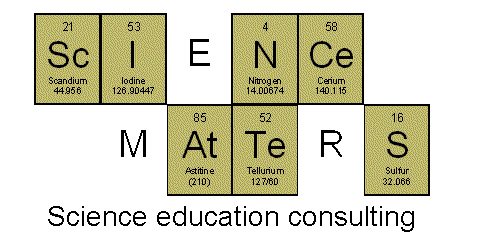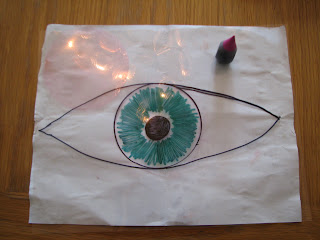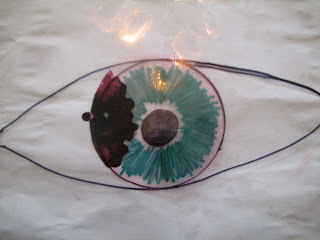As you've read through various lists of safety rules, you've no doubt encountered rules about wearing contacts in the laboratory, perhaps that rule is even on the safety contract you provide to your students. Do they know why it's there? Do you know why it's there?
Here's a simple demonstration to show your students. It's very similar to the Capillary Action in Action demonstration used when studying water and adhesion.
On an overhead transparency, draw a picture of an eye (draw it big, so it takes up the whole sheet). Then out of a second transparency, cut out a circle that's about the same size as the iris - that's your contact lens.
On demonstration day, place your giant eye on the overhead projector. Then place the contract over the eye. Place a few drops of colored water (or pure food coloring, though it goes further if you dilute it) at the edge of the contact and watch what happens.
The water is pulled under the transparency, through capillary action and adhesion.
This very same thing happens if a person wearing contacts gets something splashed in their eye - the substance will get "pulled" under the contact, potentially causing greater harm and more pain.
So remember, wear those goggles!





I found this blog after a long time which is really helpful to let understand different approaches. I am going to adopt these new point to my career and thankful for this help.ตัดแว่น
ReplyDeleteGreat experiment! This really helps you understand what goes on with our eyes!
ReplyDelete